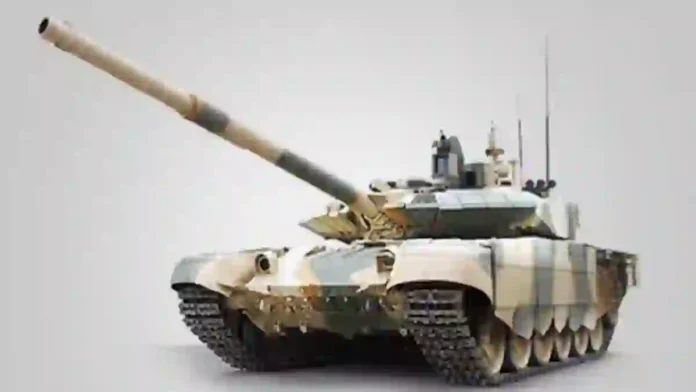The Russia-Ukraine war has prompted the Indian Army to seek active protection systems (APS) to enhance the survivability of its T-90 tanks. The Army intends to equip its Russian-origin T-90 tanks with APS, which can defend against threats from loitering munitions and top-attack missiles.
Vulnerability of Russian Tanks: The Ukraine war has exposed the vulnerability of Russian armoured units to modern weaponry, such as lightweight, shoulder-fired Javelins and NLAWs, along with drones. Over 1,400 Russian tanks have been confirmed destroyed, abandoned, or captured.
Active Protection Systems (APS): The Indian Army is looking to equip its T-90 tanks with APS that include soft kill, hard kill, and counter-unmanned aerial system (C-UAS) measures. The APS should be able to detect all types of UAS, including loitering UAVs, first-person view (FPV), swarm, and Kamikaze drones, as well as anti-tank projectiles like RPGs, ATGMs, and chemical and kinetic energy munitions.
Make in India Initiative: The Army plans to undertake the upgrades through the Make in India route. A Request for Information (RFI) has been issued to identify prospective global vendors to manufacture the APS for the T-90 S/Sk tanks in India.
T-90 Tank Capabilities: The Russian tanks have effective firepower and mobility but comparatively lesser protection than Western Main Battle Tanks (MBTs). The Indian Army operates approximately 1,250 T-90s, with about 350 more on order.
Western Tank APS: Western tanks like the US Abrams MBT are already equipped with active protection systems to counter incoming missiles and drones.
Read- HAL Plans To Crank Up TEJAS Fighter Production To Check IAF’s Squadron Strength Shortfall
Omnidirectional Threat: The Indian Army recognizes that the anti-tank threat is not limited to the frontal arc but has become omnidirectional.
RFI Details: The APS should be modular and capable of integrating additional sensors and combat systems. The RFI does not specify the number of APSs to be manufactured but it is likely that all operational T-90S/SK MBTs will receive the upgrade. The soft-kill systems will be intended to neutralize anti-tank guided missiles (ATGMs) and UASs, while the hard-kill system is required to be capable of neutralizing chemical energy (CE) and kinetic energy (KE) projectiles.
Lessons For India
The Russia-Ukraine conflict posits that future wars will not simply be conventional but will follow a multi-domain template. The fusion of technologies like machine learning, Artificial Intelligence (AI), robotics, automation and space-based surveillance substantiates military superiority. For India, the lesson is in optimising the use of tanks alongside advances in electronic warfare systems, ATGMs, and unmanned aerial systems (UAS).
Agencies




